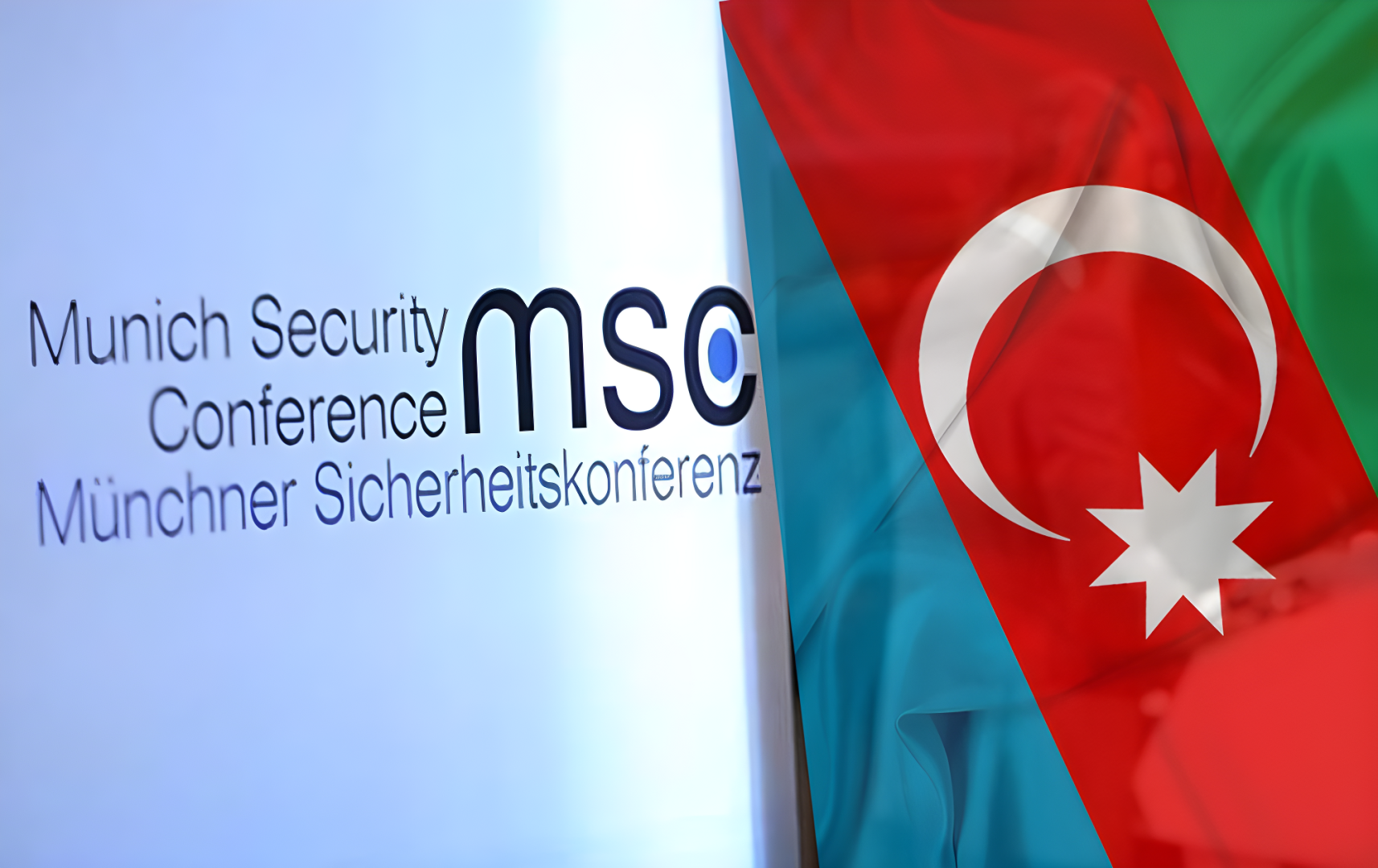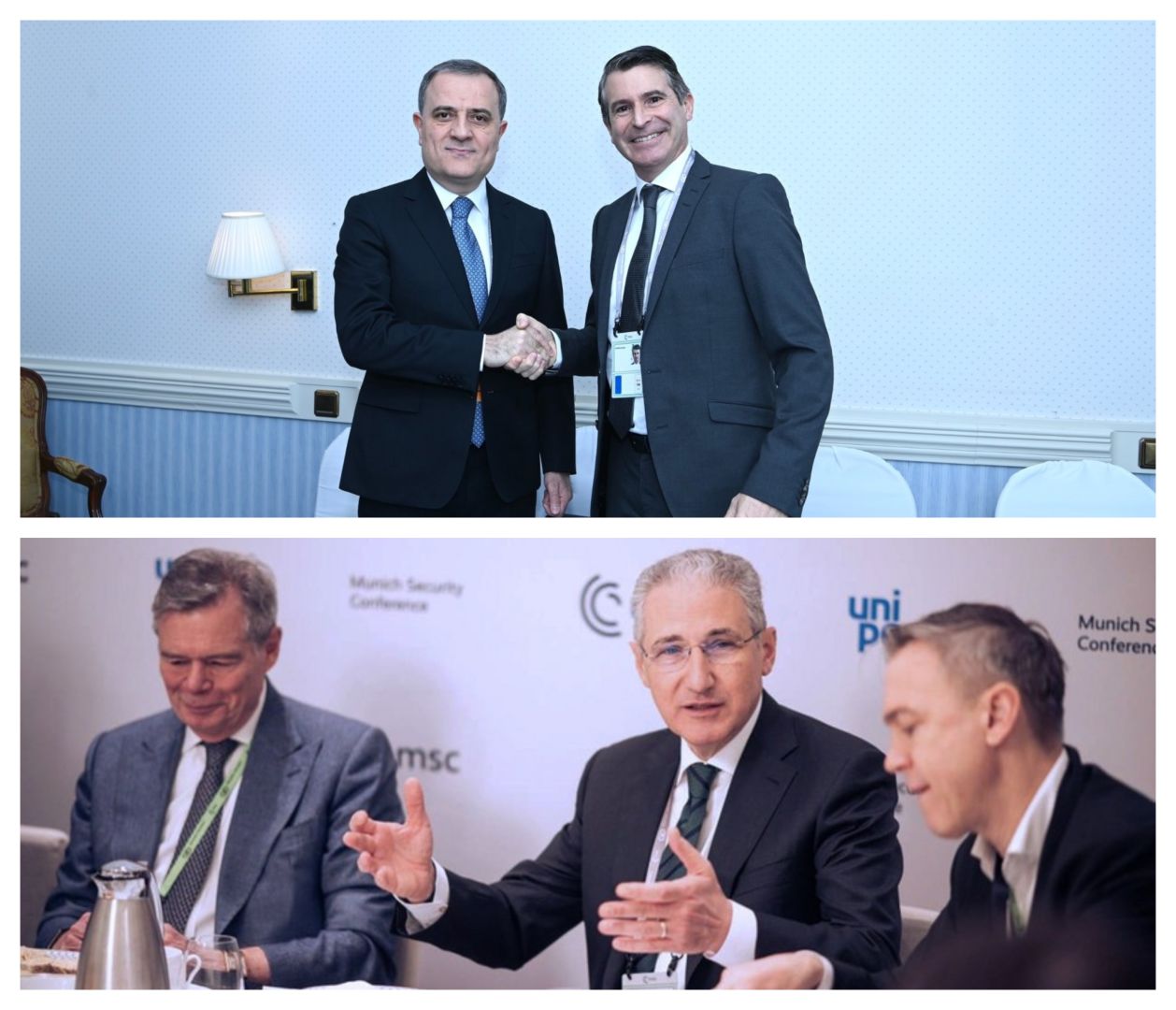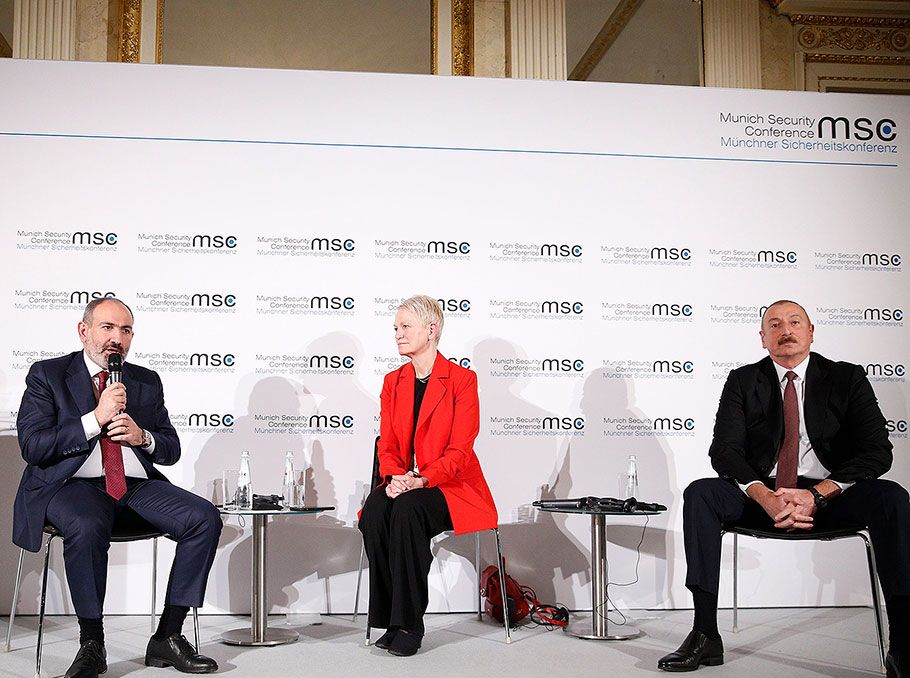Munich Security Conference: Shift in global power, Azerbaijan's role in energy security

The Munich Security Conference (MSC), the world's premier forum for high-level discussions on international security, has once again brought together global leaders to navigate pressing geopolitical challenges. Against the backdrop of escalating conflicts, shifting alliances, and an increasingly volatile global order, this year's conference carries unprecedented weight. Established in 1963, the conference has grown from a primarily Transatlantic security dialogue into a globally influential forum that gathers heads of state, government officials, parliamentarians, security experts, private sector representatives, NGOs, and media figures to address the most pressing challenges of international security.
The MSC’s mission is to foster trust through continuous and informal dialogue, contributing to the resolution of global and regional conflicts. While its initial focus was primarily on European and Transatlantic security, the conference has since expanded its scope to address broader global challenges, incorporating issues of economic, environmental, and humanitarian security into its discussions.
While traditionally a stage for verbal diplomacy, the conference now plays a decisive role in shaping global security policies. This year’s MSC, the 61st edition, takes place against the backdrop of shifting global power dynamics, with major conflicts, geopolitical tensions, and trade wars reshaping international relations. The world’s leading political figures have gathered in Munich to discuss these evolving challenges, with a strong focus on the war in Ukraine, U.S.-China relations, and the role of global governance in addressing security threats.
This year's key topics of discussions are quite different compared to previous years...
The three-day event, which began on February 14, brings together over 50 heads of state and government, along with approximately 150 ministers. German President Frank-Walter Steinmeier opened the conference, followed by speeches from high-profile global leaders.
Among the key figures attending the conference are Ukrainian President Volodymyr Zelenskyy, U.S. Vice President JD Vance, NATO Secretary-General Mark Rutte, and European Commission President Ursula von der Leyen. The U.S. president’s special envoy for Ukraine and Russia, Keith Kellogg, is also present, underscoring the direct engagement between the United States, Russia, and Ukraine at this year’s conference.
The main topics on the agenda include:
- The Russia-Ukraine war – discussions on the evolving battlefield situation, the future of military aid, and potential diplomatic solutions, particularly in light of the United States’ shifting stance under President Donald Trump.
- The Middle East crisis – ongoing tensions, including developments in Syria and Gaza, regional conflicts, and their implications for global stability.
- Africa’s security landscape – addressing emerging conflicts and governance challenges across the continent.
- Tensions in Southeast Asia – the growing influence of China and its geopolitical maneuvers in the Indo-Pacific region.
- Global trade wars – the impact of U.S. trade policies on international markets and geopolitical alliances.
- Climate security and governance – the role of international cooperation in addressing climate change-related security risks.
On the first day of the conference, Ursula von der Leyen delivered a speech on "The EU in the world," while U.S. Vice President JD Vance participated in a session titled "The US in the world." Discussions also covered countering hybrid warfare in the Baltic Sea, featuring speakers such as Latvian Prime Minister Evika Silina, Finnish Foreign Minister Elina Valtonen, and Swedish Foreign Minister Maria Malmer Stenergard. Additionally, International Atomic Energy Agency Director General Rafael Mariano Grossi addressed the topic of nuclear multipolarity.
On the second day, debates will center around the state of the international order, the future of the transatlantic alliance, and regional conflicts. The final day will focus on Europe's strategic role in global affairs.
Azerbaijan’s participation and its focus at the MSC
Azerbaijan has consistently been an active participant in the Munich Security Conference, engaging at the highest levels. In previous years, Azerbaijani President Ilham Aliyev has used the MSC as a platform to articulate the country’s positions on regional security and foreign policy. However, this year, while no official confirmation of President Aliyev’s participation has been provided, Azerbaijan is represented at the conference by high-level officials from the Ministry of Foreign Affairs and the leadership of COP29.

The MSC remains significant for Azerbaijan, not only due to its geopolitical position but also because of its role in shaping global energy security. While Azerbaijan does not have a central issue on this year’s MSC agenda, several key topics directly impact the country’s strategic interests. These include:
- Energy security – Azerbaijan’s role in ensuring the diversification of Europe’s energy supply through projects like the Southern Gas Corridor.
- Green energy transition – Azerbaijan’s leadership in renewable energy development and COP29 outcomes.
- Regional connectivity and infrastructure – the expansion of trade routes, particularly through the Middle Corridor, which enhances Azerbaijan’s position as a strategic transit hub.
- South Caucasus stability and peace initiatives – ongoing efforts to normalize relations with Armenia and establish lasting peace in the region.
Azerbaijan’s active engagement in the Munich Security Conference has left a lasting mark on its diplomatic history. One of the most memorable moments in MSC history remains the live debate between President Ilham Aliyev and Armenian Prime Minister Nikol Pashinyan in February 2020. The exchange, which laid bare the realities of the Armenia-Azerbaijan conflict, showcased Azerbaijan’s ability to defend its historical and legal stance on the global stage. This debate, held within the MSC framework, was the first and only direct exchange between the leaders of Azerbaijan and Armenia in a public setting.

During the debate, President Aliyev effectively countered Armenia’s long-standing narratives on the Garabagh conflict, presenting historical facts, legal arguments, and Azerbaijan’s internationally recognized rights. This moment not only exposed the weaknesses in Armenia’s position but also reinforced Azerbaijan’s stance in the international arena.
Perhaps, Armenian Prime Minister is currently participating in the annual event. He shared that he discussed the Armenia-Azerbaijan normalization process with German Chancellor Olaf Scholz.
This year, while the primary focus of the MSC discussions revolves around U.S., Russia, and China-related geopolitical dynamics, Azerbaijan’s active engagement in these discussions signals its intent to remain a key player—not only in the South Caucasus but on the broader geopolitical stage. The MSC has often been a barometer for shifting power dynamics, and as the world navigates uncertainty, Baku’s growing role in shaping the conversation is undeniable.
Here we are to serve you with news right now. It does not cost much, but worth your attention.
Choose to support open, independent, quality journalism and subscribe on a monthly basis.
By subscribing to our online newspaper, you can have full digital access to all news, analysis, and much more.
You can also follow AzerNEWS on Twitter @AzerNewsAz or Facebook @AzerNewsNewspaper
Thank you!

